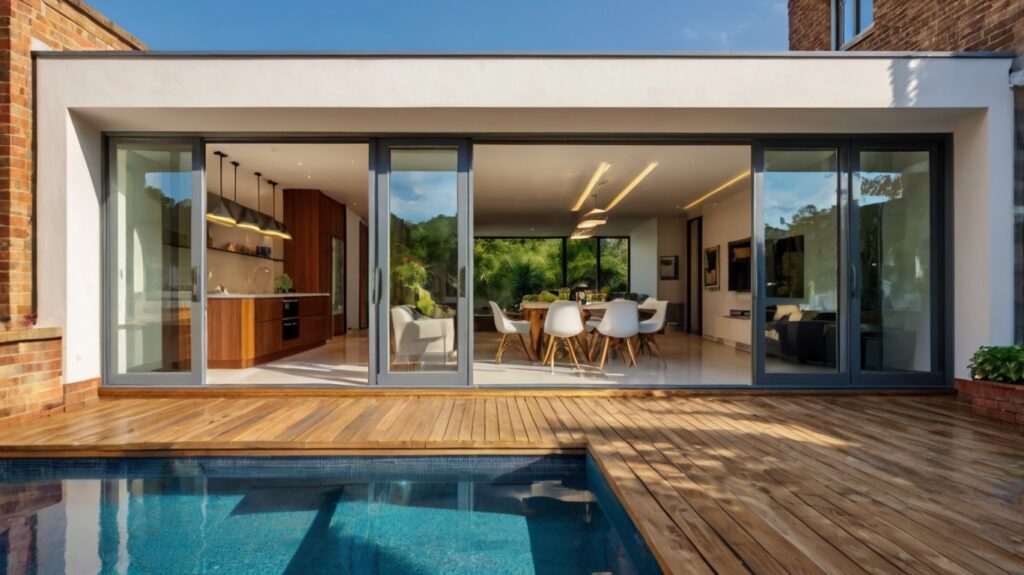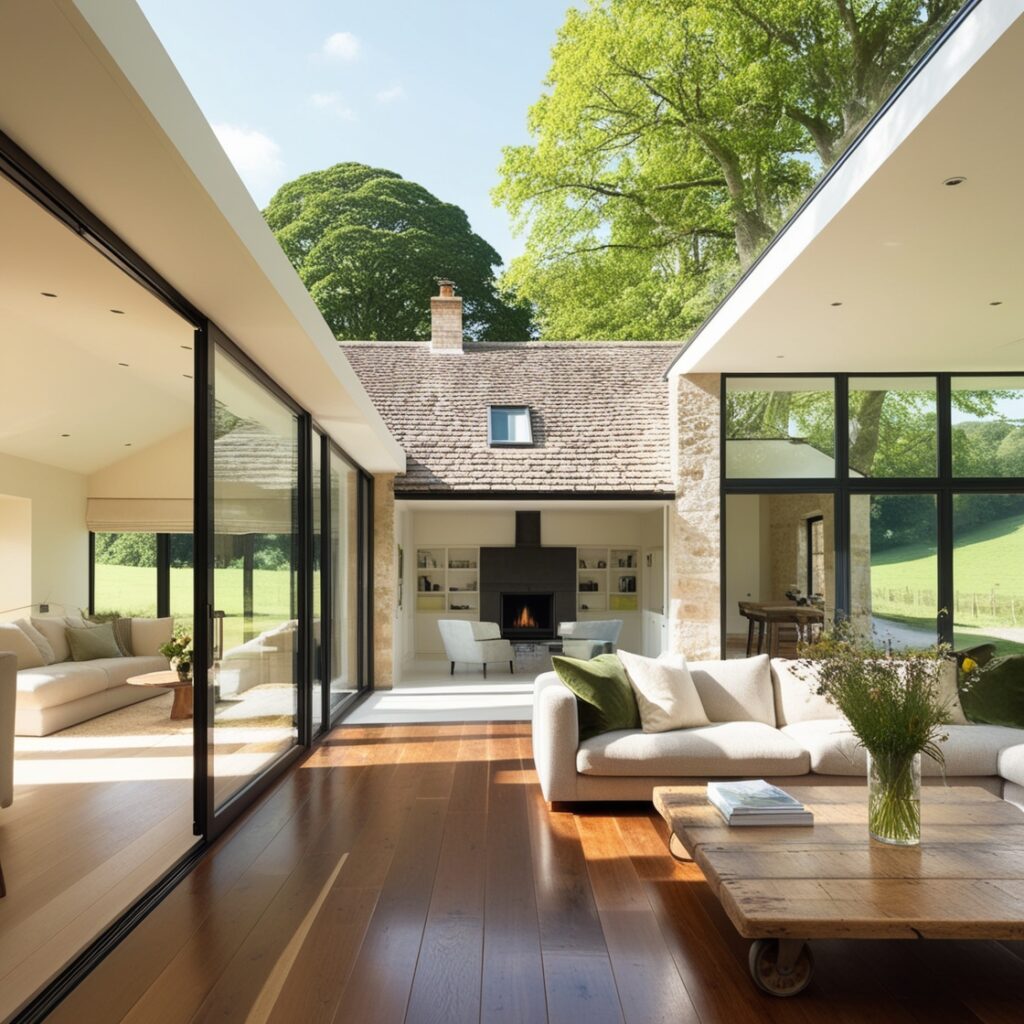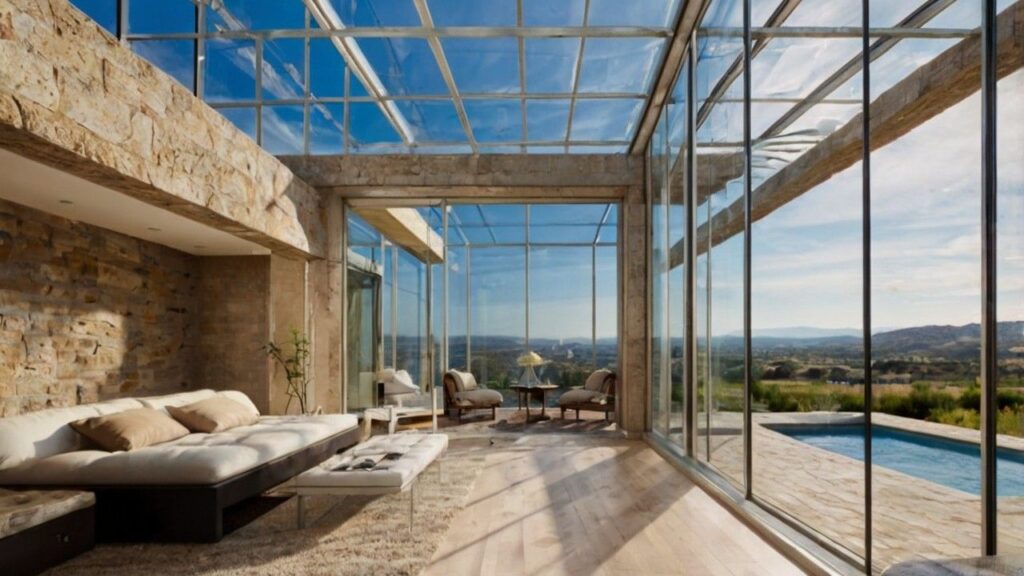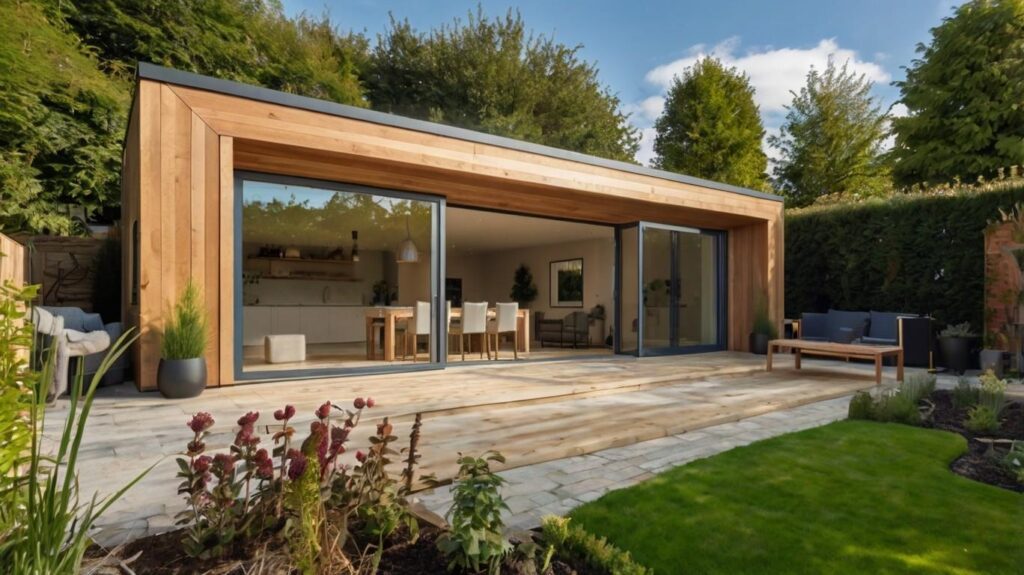house extensions Benefits especially relevant to homeowners in the United Kingdom
Are you feeling cramped in your current home but love your neighbourhood too much to move? Or perhaps you’re looking for ways to add value to your property without the hassle of relocating? Look no further than house extensions! While most homeowners are aware of the obvious benefits like increased space and property value, there are several unexpected advantages that make house extensions an even more attractive option. Here are eight surprising benefits of house extensions that you might not have considered, especially relevant to homeowners in the United Kingdom.
8 Unexpected Benefits of House Extensions in the UK | Transform Your Home
When considering your home improvement project, it’s important to look beyond just the initial price tag. The most cost-effective choice isn’t always the one with the lowest upfront cost. Instead, aim to strike a balance between affordability, durability, and your unique requirements. This approach ensures that your investment pays off in the long term.
Remember, each extension project is unique, and it’s essential to consult with professionals to ensure your plans align with local regulations and planning permissions. With careful planning and consideration, a house extension can transform not just your living space, but your entire lifestyle, allowing you to create a home that truly meets your needs both now and in the future.
Save Up to 40% on Your Project
Focus on competitive pricing could save up to 40% and these savings might allow you to choose higher-quality materials or add extra features.
1. Enhancing Natural Light and Views
One often overlooked benefit of house extensions is the opportunity to dramatically improve the natural light in your home and create stunning views of your surroundings. By thoughtfully designing your extension with large windows, skylights, or glass doors, you can transform dark, cramped spaces into bright, airy rooms that feel more spacious and inviting.
Increased natural light has numerous benefits, including: Improved mood and mental well-being. Reduced reliance on artificial lighting, leading to energy savings. Enhanced vitamin D absorption, which is crucial in the UK’s often cloudy climate. Improved sleep patterns by aligning your body’s circadian rhythms with natural light cycles
Furthermore, by orienting your extension to maximise views of your garden or surrounding landscape, you can create a stronger connection between your indoor and outdoor spaces, making your home feel more expansive and integrated with nature.
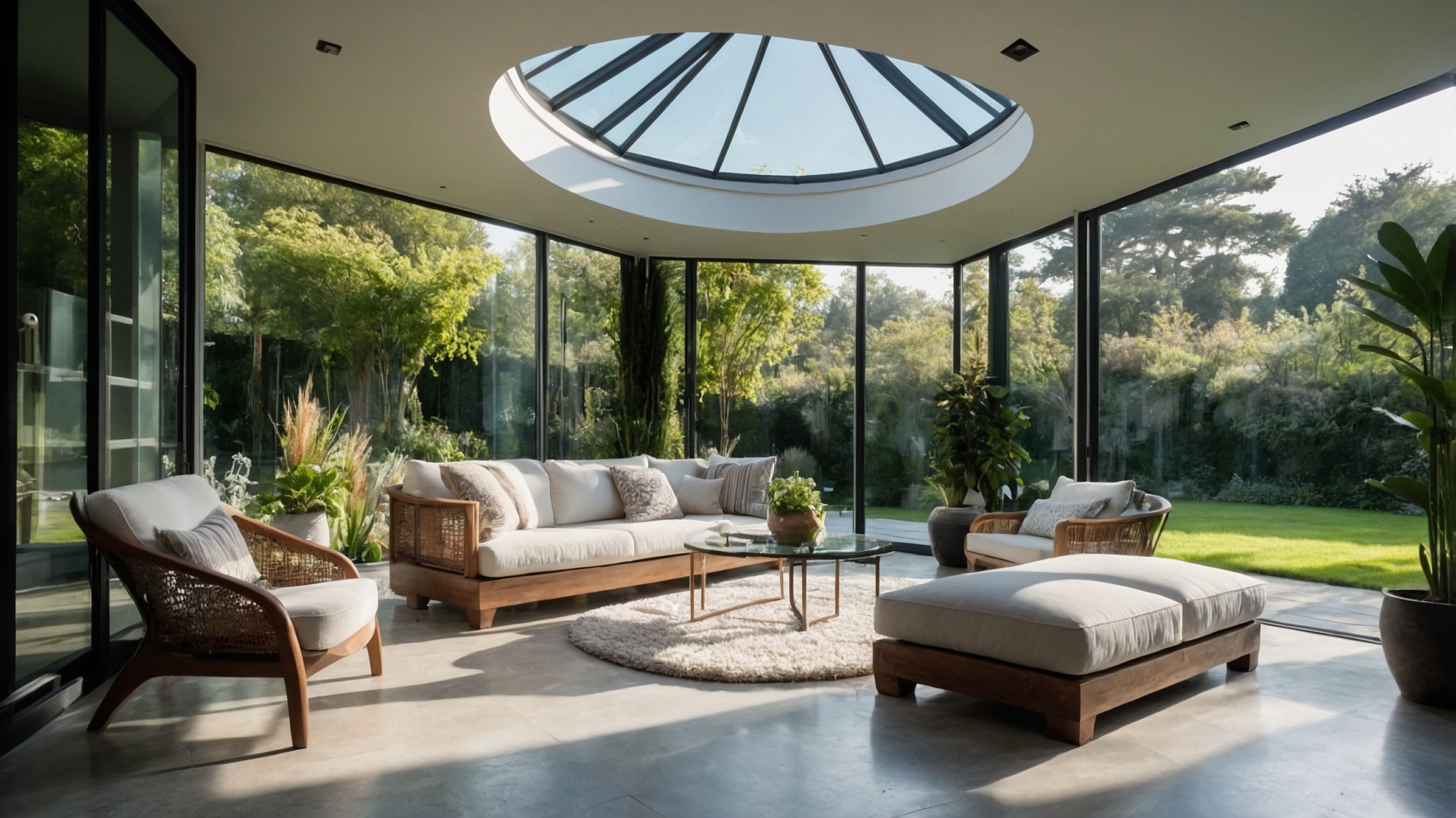
2. Unlocking Hidden Potential in Unused Spaces
House extensions aren’t limited to adding new structures to your property. Sometimes, the most surprising benefits come from reimagining and repurposing existing spaces within your home.
Consider these often-overlooked extension opportunities: Converting your loft into a cosy bedroom or home cinema. Transforming your basement into a gym or entertainment area. Enclosing a porch to create a mudroom or small study. Extending into the side return to enlarge your kitchen or create a utility room
These internal extensions can often be completed with minimal disruption and may not require planning permission, making them an attractive option for homeowners looking to maximise their living space without major construction work.
3. Future-Proofing Your Home
As we progress through different life stages, our housing needs evolve. A well-planned house extension can help future-proof your home, ensuring it remains suitable for your changing requirements over time. This adaptability can save you the stress and expense of moving house in the future.
Consider these future-proofing benefits of house extensions: Creating accessible living spaces for ageing in place. Designing flexible rooms that can serve multiple purposes as your needs change
Installing smart home technology for improved security and convenience. Incorporating sustainable features to meet future environmental standards.
By anticipating your future needs and incorporating them into your extension plans, you can create a home that will serve you well for years to come, potentially saving you money in the long run.
Why Should You Listen to Us?
Our UK-based team helped over 1M homeowners save up to 40% on home improvement projects. By using our free no-obligation quote comparison service, you will receive the most competitive quotes from vetted and accredited companies.
4. Embracing Indoor-Outdoor Living
The British weather may be unpredictable, but that doesn’t mean we can’t make the most of our outdoor spaces. A well-designed house extension can blur the lines between indoor and outdoor living, allowing you to enjoy your garden year-round.
Consider these indoor-outdoor extension ideas: Orangeries or conservatories that provide a transitional space between home and garden. Bi-fold or sliding doors that open up entire walls to connect interior rooms with patios or decks. Covered outdoor kitchens or dining areas for al fresco entertaining. Garden rooms or she-sheds for a private retreat just steps from your main home.
By creating these seamless transitions between indoor and outdoor spaces, you can effectively expand your living area and make the most of your property, regardless of the weather.
5. Personalising Your Living Space
One often overlooked benefit of house extensions is the opportunity to create a truly bespoke living space that reflects your personality and lifestyle. Unlike moving to a new house, where you’re often constrained by existing layouts and designs, an extension allows you to customise every aspect of your new space.
Consider these personalisation options: Creating a hobby room tailored to your interests, such as a music studio, art workshop, or home gym. Designing a kitchen that perfectly suits your cooking style and entertaining needs. Building a custom library or reading nook for book lovers. Incorporating unique architectural features that express your personal style.
By personalising your extension, you’re not just adding space; you’re creating a home that truly feels like your own. This level of customisation can significantly enhance your day-to-day living experience and emotional connection to your home.
6. Improving Your Home’s Acoustics
An often-overlooked benefit of house extensions is the opportunity to improve your home’s acoustics. Whether you’re a music enthusiast, work from home, or simply value peace and quiet, thoughtful acoustic design in your extension can significantly enhance your living environment.
Consider these acoustic improvements: Installing sound-absorbing materials in walls and ceilings to reduce echo and improve sound quality. Creating dedicated spaces for noisy activities, such as a soundproofed music room or home cinema. Using double or triple-glazed windows to reduce external noise pollution. Incorporating water features or green walls that provide natural white noise
Improved acoustics can lead to a more peaceful home environment, better sleep quality, and enhanced enjoyment of music and entertainment. For those working from home, it can also mean more professional-sounding video calls and increased productivity.
By considering acoustics in your extension design, you’re not just adding space, but actively improving the quality of life in your entire home. This attention to auditory comfort can create a more relaxing and harmonious living environment for you and your family.
7. Creating the Ultimate Home Office
With many UK professionals now embracing remote or hybrid working models a house extension offers the perfect opportunity to create a dedicated home office space that goes beyond a simple desk.
By designing a purpose-built home office extension, you can benefit from:
Improved work-life balance by physically separating your work and living spaces. Enhanced productivity with a tailored workspace free from distractions. Professional meeting space for client visits or video conferences. Potential tax benefits, you may be able to claim expenses for a home office.
As remote work continues to shape the future of employment, a well-designed home office extension could become a valuable asset for your property.
UK-Based Support Team
Knowledgeable, UK-based support team is familiar with local markets, regulations, and trends, so you’ll always get relevant and current advice.
8. Boosting Energy Efficiency
Consider these energy-efficient features for your extension: High-performance insulation in walls, floors, and roofs. Double or triple-glazed windows with low-emissivity glass. Energy-efficient heating systems, such as underfloor heating or heat pumps. Smart home technology for optimised energy management. Solar panels or green roofs for sustainable energy generation.
While it might seem counterintuitive, extending your home can actually lead to improved energy efficiency. When planning an extension, you have the opportunity to incorporate the latest energy-saving technologies and materials, which can significantly reduce your carbon footprint and energy bills.
By implementing these features in your extension, you can create a more environmentally friendly home while potentially qualifying for government incentives or improved energy ratings, which can boost your property’s value.
Budgeting for Your House Extension: Understanding the Full Costs
When planning your house extension project, it’s essential to consider all potential costs:
When planning a house extension, one of the most crucial aspects is understanding and budgeting for the full costs involved. While the idea of expanding your living space is exciting, it’s essential to have a clear financial picture to ensure your project stays on track and doesn’t become a source of stress.
Let’s break down the various costs you need to consider:
Design and Planning Costs: Before any construction begins, you’ll need to invest in design and planning: Architect fees: Typically 3-7% of the total project cost. Structural engineer fees: Around £500-£1,000 for a standard extension. Planning permission fees: £206 for a standard application in England. Building regulations approval: Usually between £200 and £900.
Construction Costs: This is likely to be the largest portion of your budget: Basic building work: £1,000-£2,000 per square metre for a standard extension. High-end finishes: Can increase to £3,000 or more per square metre. Two-storey extensions: Often 50-100% more expensive than single-storey.
Interior Finishing: Don’t forget to budget for making the new space livable: Flooring: £20-£100 per square metre. Painting and decorating: £10-£25 per square metre. Lighting fixtures: £50-£500 per room. Heating systems: £1,000-£5,000 depending on the system.
Kitchen or Bathroom Installation: If your extension includes a new kitchen or bathroom, budget separately for these: Basic kitchen: £5,000-£20,000. Luxury kitchen: £20,000-£50,000 or more. Basic bathroom: £2,500-£6,000. Luxury bathroom: £7,000-£15,000 or more.
Professional Fees: Various professionals may be needed throughout the project: Project manager: 10-15% of the total project cost. Surveyor: £500-£1,500. Party wall surveyor (if required): £700-£1,000 per neighbour.
Legal Costs: Don’t overlook potential legal fees: Solicitor fees for lease extensions or amendments: £500-£2,000. Party wall agreements: £1,000-£2,000 if disputes arise
Contingency Fund: Always set aside a contingency fund for unexpected costs: Aim for 10-20% of your total budget.
Temporary Accommodation: If you need to move out during the work: Rental costs: £800-£2,000 per month depending on your location and needs.
Landscaping: After the extension, you may need to restore your garden: Basic landscaping: £1,000-£5,000
Extensive landscaping: £5,000-£20,000 or more.
Furniture and Appliances: Don’t forget to budget for furnishing your new space: Basic furnishings: £2,000-£5,000 per room. High-end furnishings: £5,000-£20,000 or more per room.
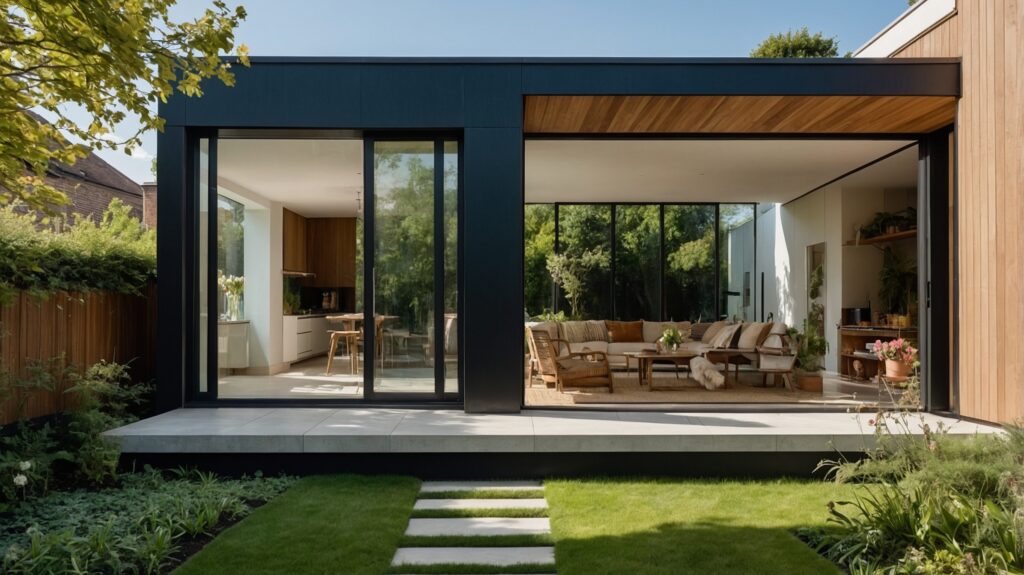
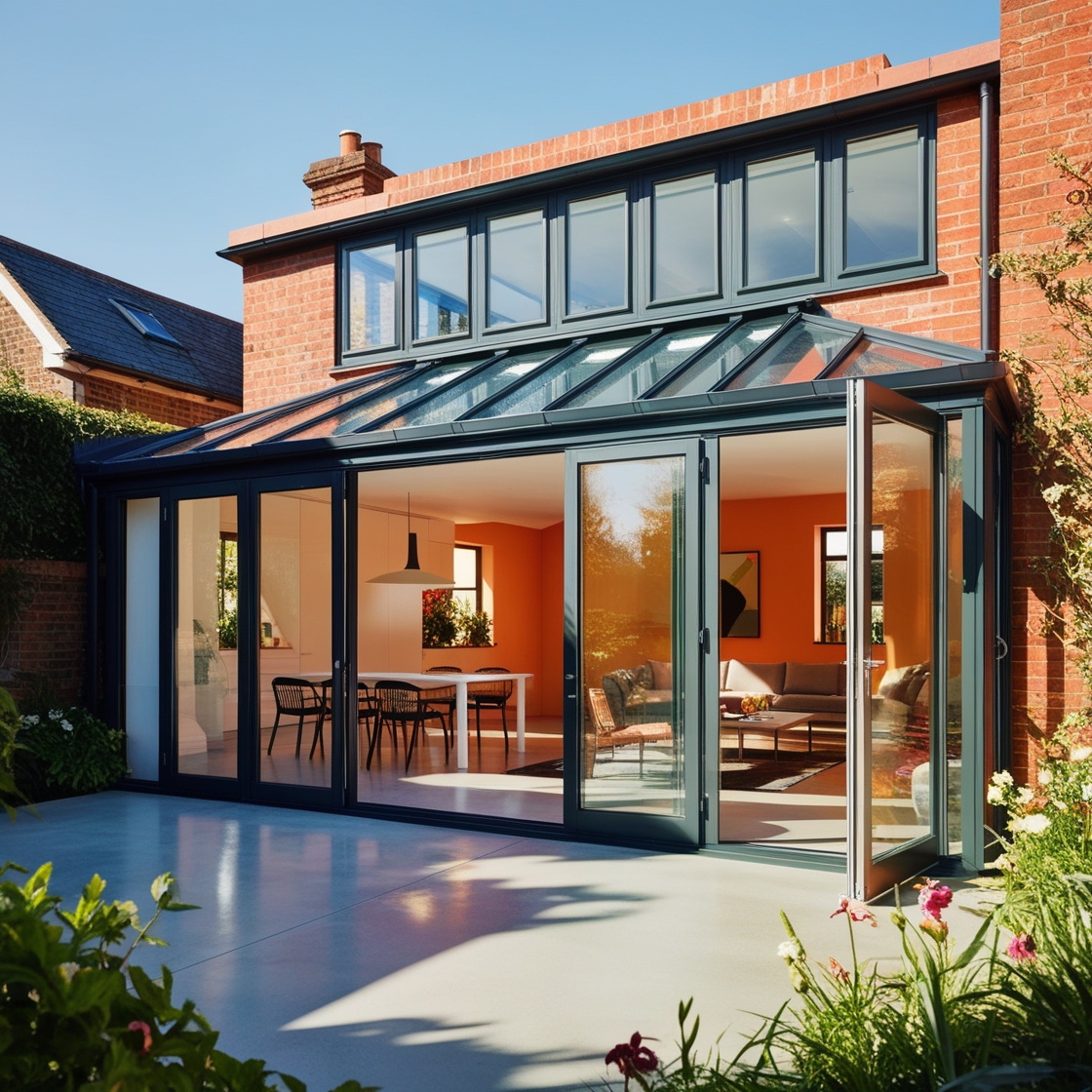
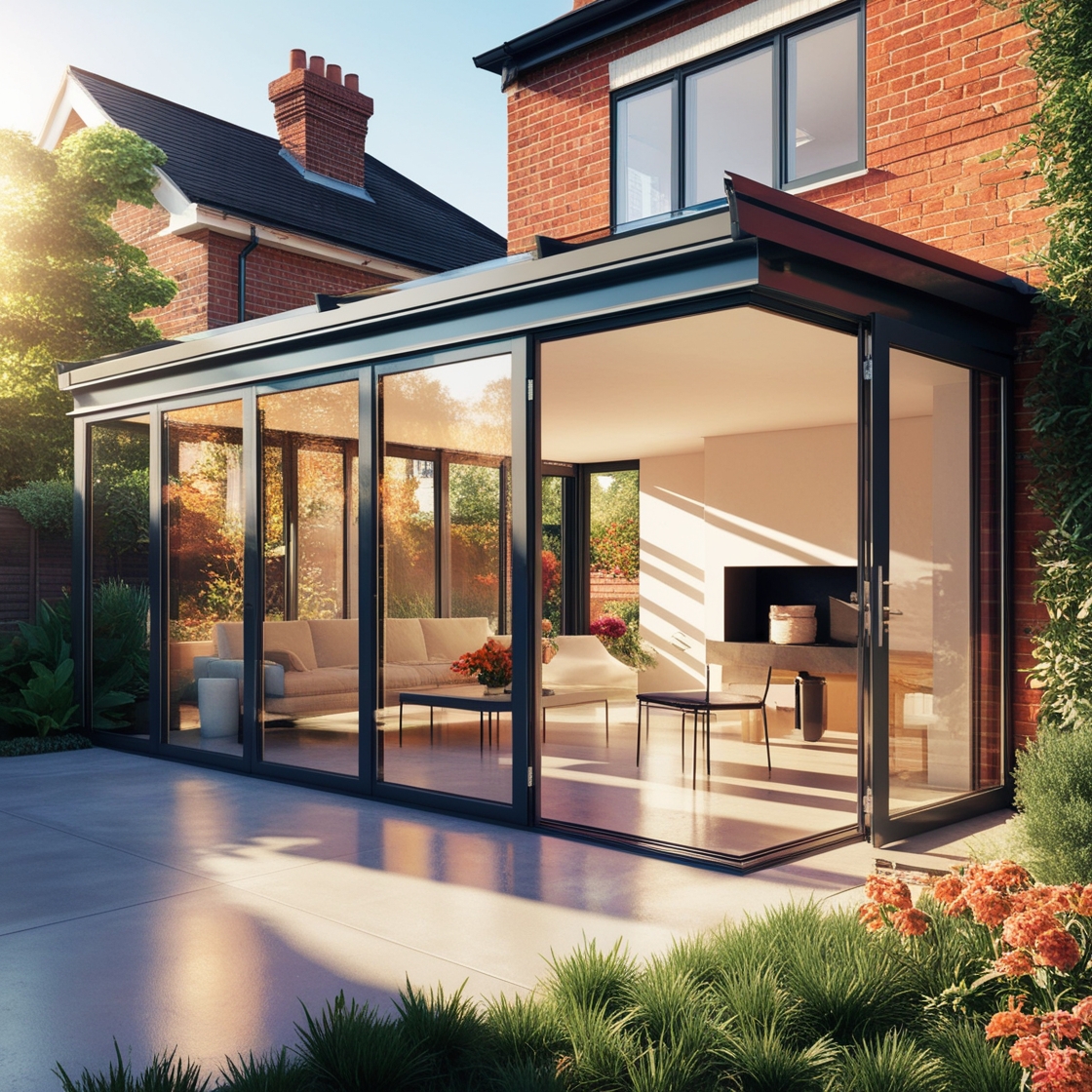
Home Improvement Ideas: Tips and Tricks
- Open-plan living: Consider knocking down non-load-bearing walls to create a more spacious, flowing living area.
- Underfloor heating: Install energy-efficient underfloor heating for a luxurious and cost-effective heating solution.
- Smart storage solutions: Incorporate built-in storage and multi-functional furniture to maximise space efficiency.
- Eco-friendly materials: Use sustainable and recycled materials in your extension to reduce environmental impact.
- Vertical gardens: Introduce living walls or vertical gardens to bring nature indoors and improve air quality.
- Skylights and sun tubes: Install skylights or sun tubes to bring natural light into dark corners of your home.
- Zoned lighting: Implement a zoned lighting system to create different moods and save energy.
- Outdoor living spaces: Design a covered patio or deck to extend your living space outdoors.
CONCLUSION: Remember, while these figures provide a general guide, costs can vary significantly depending on your location, the complexity of the project, and your specific choices. It’s always best to get detailed, professional quotes for your particular extension plans.
By understanding and planning for these costs, you can approach your house extension project with confidence, ensuring that your budget aligns with your vision.
Do I need planning permission for a house extension in the UK?
In many cases, you can extend your home under Permitted Development rights without needing full planning permission. However, this depends on factors such as the size and location of your extension, as well as any local restrictions. It’s always best to check with your local planning authority before proceeding.
How much does a typical house extension cost in the UK?
The cost of a house extension can vary widely depending on factors such as size, location, and specification. On average, you might expect to pay between £1,000 and £2,000 per square metre for a basic extension, with high-end extensions costing £3,000 or more per square metre. Always get multiple quotes from reputable builders for an accurate estimate.
How long does a house extension typically take to complete?
The duration of a house extension project can vary, but typically ranges from 3 to 6 months for a single-storey extension, and 6 to 12 months for a more complex two-storey extension. Factors such as weather, availability of materials, and any unexpected issues can affect the timeline.
Will a house extension always add value to my property?
While house extensions generally do add value, the amount can vary. The key is to ensure the cost of the extension is less than the value it adds. Factors such as the quality of the work, how well it integrates with the existing property, and local market conditions all play a role in determining the added value.
Can I live in my house during the extension work?
In most cases, yes, you can continue living in your house during the extension work. However, it can be disruptive, with noise, dust, and reduced privacy. Some homeowners choose to move out temporarily, especially during major phases of the work. Discuss this with your builder to understand the impact and plan accordingly.
Thoroughly Vetted Professionals
Every supplier goes through a strict vetting process, including credit checks and accreditation verification.
All our suppliers are members of one or more consumer protection groups below.

Simply Fill in Your Details, and Receive Competitive Quotes from Accredited Companies Tailored to Your Project!
When you request a quote through our website, we may receive a small commission from our partners at no extra cost to you. Reaching out to us means tapping into a wealth of experience from home improvements experts who know the British market inside out.
Unparalleled market insights, a network of skilled professionals vetted, accredited and reference – credit checked who can handle projects of all sizes. Knowledgeable, UK-based team will ensure a smooth, informed experience from start to finish.
To send us your marketing and other service offers, please use the following email: offers@comparison.market

